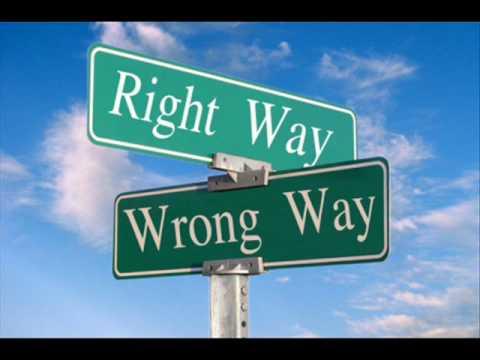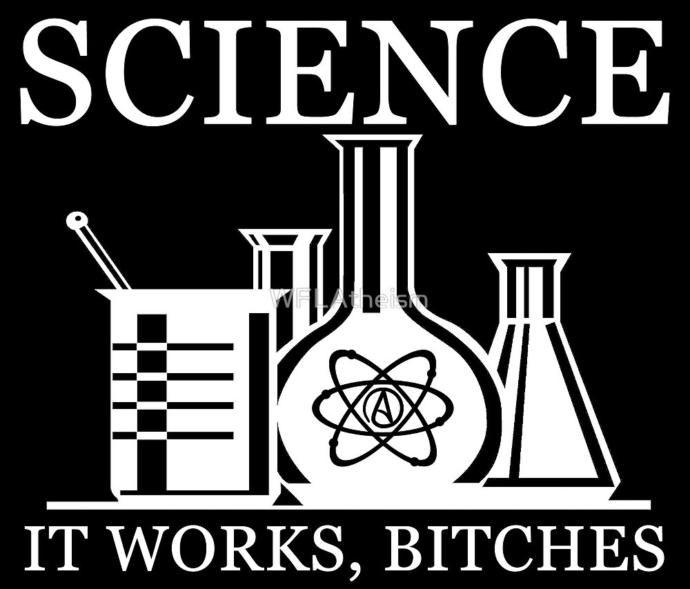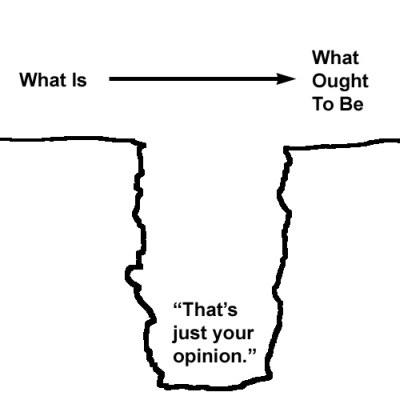I want to attempt to provide a case that science establishes the closest thing to "objective morality". This idea of objective morality has puzzled philosophers throughout history. One of the questions is this:
Why can we seem to intuitively determine that one set of moral principles is superior to another if there is no objective basis for morality?
This article attempts an answer from an engineering mindset, and the short answer is science combined with empathy, programmed in us by nature as a cooperative and altruistic species.
It's also intended to answer questions from religious people about how an atheist, like myself, can possibly have moral principles.

"Morality"
Empathy and altruism is practically embedded into the concept of "morality". If anyone is acting in an entirely selfish way with no concern about the well-being of others, everyone of every religious denomination can most likely agree that such an individual is morally bankrupt.
Keep this in mind since when I refer to "scientific morality", I am suggesting the combination of science, empathy, and altruism. It does not lead to a cold-hearted, utilitarian society that considers it beneficial to tyrannize a group for the greater good, even if that can be scientifically justified as an optimal action. That would simply be "scientific" and hardly moral.
Objective Morality
For a start, I'm going to claim that objective morality does not exist. Many assume that if you don't believe it does, you must be a moral nihilist who believes that nothing is inherently right or wrong. I don't believe that either.
Instead, to the best of my findings, humans appear to be a social and cooperative species. Lacking any significant anomalies (brain damage, extreme social conditioning, etc), they're typically cooperative and altruistic. Their self-interests generally go far beyond themselves, expressing concern for the welfare of others in their social group and sometimes even those outside their social group*.
* Xenophobia is one unfortunate exception. For the sake of brevity, let's gloss over this. However, it's worth noting that rational, scientific thinking is also one of the most effective cures against the most irrational, instinctive fear of outsiders.
These social, cooperative, altruistic, empathetic tendencies are the closest thing to what we all have in common universally as I see it. We care for the well-being of others and we're willing to make altruistic sacrifices to benefit others. When those we care about suffer and are treated unfairly, we suffer as well.

Reliable Knowledge
So given these universal tendencies for us to care not only about ourselves individually, but others as well, what allows us to reach a wide consensus that one set of moral principles is superior to another?
The answer as I see it is "reliable" knowledge. We don't even have to worry about "correctness". I'll avoid "correctness" to avoid getting into debates about what scientific theories are wrong or right. Let's please avoid that. Let's just say:
Reliable knowledge makes accurate, testable predictions of the consequences of our actions. Unreliable knowledge does not.
"Reliable" knowledge has practical utility in the material world. It lets us consistently predict that, when we take a certain action, a particular outcome will occur.
For example, if we treat the Black Death with antibiotics, it will be cured. That's scientific knowledge, derived rigorously, and capable of being tested by independent parties, with consistent results.

The Black Death
Take the Black Death which spread throughout Europe. It was estimated to have killed one-third of Europe's population (in the tens of millions). Imagine living in such a time where one-third of your loved ones were dying due to the plague. There is no known cure around at the time.

Now take a group of fanatics who believe that Jews were responsible for the plague by poisoning wells. They believe this with such certainty that they massacre Jewish communities, burning Jews alive at the stake.
What would you do if you wholeheartedly accepted what these fanatics believed while your loved ones were dying left and right? Would you just let these evil people who brought this plague upon your loved ones go about continuing to poison wells and kill everyone you know, or will you join in massacring their communities and burning them alive at the stake?
What allows us to condemn the actions of these fanatics today? The answer is simple: science. Science informs us that rodents were the source of the plague, not poisoning of wells, and it also discovered a cure for the plague.
With this knowledge, we discover that the Europeans who massacred Jews did so for no good reason at all except faulty knowledge. Yet they weren't "immoral", so to speak, so much as "misguided" by faulty beliefs.
Moral Dilemma
Let's now look at a moral dilemma. If your family member is infected with the plague, what should you do?
A) Kill Jews, believing that they're poisoning your family.
B) Perform witch trials, believing the plague is God's wrath for witchcraft and heresy.
C) Pray for a cure.
D) Administer antibiotics.
What's the best choice, and how do we determine that one of these actions is morally superior to another? The answer to this question is the closest thing we get to "objective morality" in a nutshell. One of these options is based on knowledge which was rigorously obtained, capable of being tested and verified, with consistent results. The knowledge and beliefs behind the other options cannot be tested and validated in any consistent way.

Unreliable Knowledge
When we allow unreliable knowledge based on predictions which cannot be validated (ex: predictions about consequences in the afterlife) to dictate morality, then anything goes.
A group of religious people can believe that sacrificing virgins each month to ward off earthquakes is a viable option to appease their gods in this world and ensure their salvation in the afterlife. How can we criticize these people and condemn their actions as immoral? From their standpoint, they're saving humanity.

Religious people of all denominations might point at ancient scripture suggesting that they are in the wrong, but now we've got a holy war. Which religion is correct? Which one is wrong? How do we establish a rigorous criteria to determine which set of beliefs accurately predicts the outcomes of their actions and which do not?
The only higher authority that rises above the rest that I can see people of all religious denominations potentially agreeing upon is science. Science can inform us that sacrificing virgins monthly is not going to have any effect on earthquakes. It can demonstrate this reliably in ways that no religious claims can.
Deranged Killer
If a deranged serial killer believes that the voices in his head are coming from angels telling him to kill people, how can we say he's wrong? Maybe we're all wrong and he's actually right.
We can't say that for sure unless we have a rigorous way to test the validity of his claims. It's only through science that we can say, with some confidence, that the voices from his head are the result of psychological disorders and possibly even brain damage.
If we don't establish a rigorous way of obtaining and testing knowledge, who are we to say he's in the wrong? This killer is operating on faith. We cannot test and validate his claims. If we're trying counter faith-based beliefs with more faith-based beliefs, we end up nowhere.
The only way we can say that something is "right" and something is "wrong" with any degree of confidence is if we can test the claims and see if they produce consistent results. That's the closest we get to "objectively right": various people can test something over and over and end up with consistent results.

Misguided
I want to start replacing the word, "immoral", with "misguided". Many acts in history which we can largely agree upon today as being "evil" did not sprout from thin air. If we examine the people and their ideologies and what they believed to be absolutely true, they weren't "bad" people necessarily; they were misguided.
They relied upon unreliable knowledge which made inaccurate predictions about the outcome of their actions. That's how we can look back at these people and say they were in the wrong.
They were wrong not because they were satanic creatures, but simply misguided human beings who actually believed they were doing the right thing.

Hume's Law
More simply known as the is-ought problem, Hume's Law states that we cannot necessarily derive a prescriptive claim about what ought to be from a descriptive statement about what is.

For example, even though we now know that administering antibiotics effectively cures the Black Death, why should we? Why should we bother to save people?
The key to bridging this gap requires that we establish a goal. If we can establish a goal and agree on it, then descriptive statements can lead to prescriptive statements.
Given everything we understand from these statements, we ought to do this to best fulfill this goal.
So does humanity have a set of goals that would allow us to at least reach a fairly wide consensus? I'd say, "yes, mostly". Since we're an empathetic and cooperative species who care about the well-being of others, especially our loved ones, we largely share this goal in common. We might individually care for different sets of people, but given the overlap from one individual to the next, it can quickly encompass an entire population.
As a result it should be obvious to most of us that if someone is infected with the Black Death and antibiotics are an effective and inexpensive cure, we ought to administer antibiotics to the infected. We have these overlapping goals to protect those we care about.
This especially applies when we consider that if we don't, the plague could easily spread to us and those we love even if the infected are outside the immediate group of people we personally care about.
Nihilism
Of course we could divorce ourselves from our humanity and ask, what's the point of even being humane? What's the point of being an altruistic, cooperative species, even if we have these tendencies? What's the point of caring for my loved ones?
If we do that, then we've ventured into outer space as far as morality goes. That's working towards moral nihilism, but at that point we're no longer even immersing ourselves in our own humanity. I see this type of thinking as fruitless.

Scientific Morality
I hope I've made some case for why scientific knowledge combined with our human tendencies to be empathetic and cooperative is the closest thing we have to "objective morality". I also see it as the only hope for humanity to reach a near-universal consensus on what is right and wrong.
We cannot do this if we fail to establish a rigorous, testable criteria to determine what set of beliefs guiding our actions make more accurate predictions than others. If we can't reliably know the consequences of our actions, then anything goes.
I realize this article may challenge the beliefs of some religious people and possibly even philosophers. For the religious, I'd like you to consider other religious groups you consider to be highly immoral people, and try to figure out how you can reliably show, with consistent results, that the consequences of their actions are not what they believe them to be without science.
If we allow faith to guide our notions of right and wrong, then everyone ends up in an arbitrary place based on whatever ideologies they accept on faith alone. A Mormon cannot criticize a Jihadist as being immoral in any viable way besides:
My beliefs which make no accurate predictions are right, while your beliefs which make no accurate predictions are wrong.
This gets us nowhere. Probably the only way we can expect a winner to come out of such an argument is for one to kill the other.
Science, combined with broadening our empathy, is the only hope I see for those of us of all religious denominations to come together and largely agree on a set of moral principles. It's the only hope I see to uniting all of us without simply converging on the same religious beliefs which we accept through nothing more than faith (ex: one world religion to rule them all which we all come to subscribe towards).

 Holidays
Holidays  Girl's Behavior
Girl's Behavior  Guy's Behavior
Guy's Behavior  Flirting
Flirting  Dating
Dating  Relationships
Relationships  Fashion & Beauty
Fashion & Beauty  Health & Fitness
Health & Fitness  Marriage & Weddings
Marriage & Weddings  Shopping & Gifts
Shopping & Gifts  Technology & Internet
Technology & Internet  Break Up & Divorce
Break Up & Divorce  Education & Career
Education & Career  Entertainment & Arts
Entertainment & Arts  Family & Friends
Family & Friends  Food & Beverage
Food & Beverage  Hobbies & Leisure
Hobbies & Leisure  Other
Other  Religion & Spirituality
Religion & Spirituality  Society & Politics
Society & Politics  Sports
Sports  Travel
Travel  Trending & News
Trending & News
Most Helpful Opinions